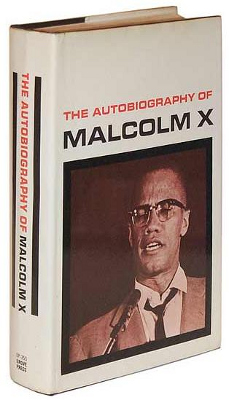The Autobiography of Malcolm X was the result of a collaboration between Malcolm X and journalist Alex Haley, who wrote the autobiography based on a series of in-depth interviews he conducted with Malcolm X between 1963 and 1965. After Malcolm X's death Haley authored the book's epilogue, which describes their collaboration and summarizes the end of Malcolm X's life.
While Malcolm X and contemporary scholars may have regarded Haley as the book's ghostwriter, modern scholarship tends to regard him as an essential collaborator who intentionally subsumed his authorial voice to allow readers to feel as though Malcolm X were speaking directly to them. Haley also influenced some of Malcolm X's literary choices; for example, when Malcolm X left the Nation of Islam during the composition of the book, Haley persuaded him to favor a style of "suspense and drama" rather than rewriting earlier chapters into a polemic against the Nation. Further, Haley's proactive censorship of the manuscript's antisemitic material significantly influenced the ideological tone of the Autobiography, increasing its commercial success and popularity although distorting Malcolm X's public persona.
Eliot Fremont-Smith, reviewing the book for The New York Times in 1965, called it "extraordinary" and a "brilliant, painful, important book". Two years later, historian John William Ward said the book "will surely become one of the classics in American autobiography". In 1998, Time named The Autobiography of Malcolm X one of the ten most influential nonfiction books of the 20th century. A screenplay adaptation of the Autobiography by William Baldwin and Arnold Perl provided the source material for Spike Lee's 1992 film Malcolm X.




